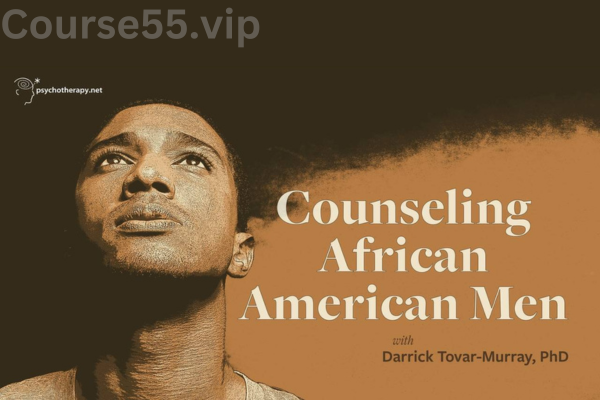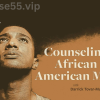-
×
 ECOM ACADEMY DAN DASILVA | MAKE 6K PER DAY WITH SHOPIFY STORE
1 × $23.10
ECOM ACADEMY DAN DASILVA | MAKE 6K PER DAY WITH SHOPIFY STORE
1 × $23.10 -
×
 New Rules for Treating Trauma: Integrating Neuroscience for Resilience, Connection and Post-Traumatic Growth By Courtney Armstrong - PESI
1 × $23.10
New Rules for Treating Trauma: Integrating Neuroscience for Resilience, Connection and Post-Traumatic Growth By Courtney Armstrong - PESI
1 × $23.10 -
×
 The Marriage Reset: From Obligation To Adventure By Dani Johnson
1 × $31.00
The Marriage Reset: From Obligation To Adventure By Dani Johnson
1 × $31.00 -
×
 Ultimate Guide Technical Trading
1 × $23.10
Ultimate Guide Technical Trading
1 × $23.10 -
×
 Spartan Renko 2.0 Workshop 2017
1 × $23.10
Spartan Renko 2.0 Workshop 2017
1 × $23.10 -
×
 The Complete Crowdfunding PR System By Salvador Briggman - CrowdCrux
1 × $23.10
The Complete Crowdfunding PR System By Salvador Briggman - CrowdCrux
1 × $23.10
Counseling African American Men with Darrick Tovar-Murray
$199.00 Original price was: $199.00.$23.10Current price is: $23.10.
SKU: C55vip.46459wjv1gFSL
Category: Download
Tags: American Men, Counseling, Counseling African American Men, Darrick Tovar-Murray
Counseling African American Men: Insights from Darrick Tovar-Murray – Digital Download!
Counseling African American Men with Darrick Tovar-Murray
Overview

Counseling African American Men: Insights from Darrick Tovar-Murray
In an increasingly diverse world, it is vital to understand the distinct challenges faced by various cultural groups, especially in the context of mental health. The video series “Counseling African American Men,” guided by Dr. Darrick Tovar-Murray, provides an in-depth look at the unique emotional and psychological issues encountered by African American men. The series is not just for counselors but encourages the development of cultural competence, essential for building effective therapeutic relationships. Through real-world therapy sessions, Dr. Tovar-Murray invites viewers to engage with the multifaceted experiences of African American males, promoting a deeper understanding that goes beyond common stereotypes. This article explores the central elements of the series, underscoring its importance in therapy practices and its broader implications for the mental health of marginalized communities.
Addressing Emotional and Psychological Struggles Unique to African American Men
African American men frequently navigate complex layers of societal pressure, racial discrimination, and historical trauma that profoundly shape their emotional states. This series places these struggles within the context of systemic oppression that has long targeted this demographic. Research by the American Psychological Association shows that African American men are statistically more vulnerable to mental health challenges, worsened by issues like racism and socio-economic inequality. This underscores the critical need for counselors to adopt a nuanced approach that recognizes and affirms these lived realities rather than reducing them to mere statistics.
Dr. Tovar-Murray uses rich metaphors in every volume of the series to illustrate the often hidden burdens carried by African American men. For example, societal pressures are depicted as a “weight” that impacts not only mental well-being but also relationships and self-image. Microaggressions, in particular, are compared to a gradual leak in a tire that erodes one’s ability to overcome challenges. By drawing attention to these concerns, the series prompts counselors to approach the African American male experience with greater empathy, recognizing the layers of pain and strength entwined within these individuals’ journeys.
Struggles with Identity and Societal Expectations
The issue of identity is a key theme throughout the series, highlighting the internal battles African American men face. They often struggle with societal pressures dictating how they should act, behave, and present themselves. Dr. Tovar-Murray explores these issues in reflective discussions, urging therapists to consider how societal norms shape their clients’ identities. African American men often find themselves at odds with the “strong black man” archetype, which pressures them to display strength while concealing vulnerabilities they may wish to express. This internal conflict often leads to emotional strain, as many feel compelled to uphold an image of strength despite grappling with mental health challenges.
Key Aspects of Identity Struggles:
-
Cultural Misconceptions: Challenging stereotypes that limit individual identities.
-
Pressure to Fit In: Examining societal expectations and their effect on mental health.
-
Balancing Vulnerability and Strength: Facilitating open conversations about emotional expression.
Recognizing and addressing these identity struggles is vital for counselors seeking to foster trust and rapport with their clients. Dr. Tovar-Murray emphasizes the importance of providing a safe, non-judgmental space where clients can be authentic without fear of misunderstanding.
Engaging in Difficult Conversations: Racism, Microaggressions, and Trauma
Dr. Tovar-Murray’s discussions move beyond theoretical analysis to urge therapists to directly address the challenging topics of race and trauma. Racism, whether overt or subtle in the form of microaggressions, deeply impacts mental health and requires attention in therapeutic settings. By avoiding these difficult conversations, counselors risk alienating clients and missing crucial aspects of their experiences.
In the series, Dr. Tovar-Murray presents real therapy sessions, demonstrating how therapists can approach these sensitive issues. He offers strategies to guide discussions about race, ensuring clients feel safe to confront painful experiences without fear of judgment or anxiety. His approach emphasizes the importance of addressing these matters head-on, not only to deepen understanding but to support healing.
Effective Techniques for Handling Sensitive Discussions:
-
Active Listening: Prioritize understanding the client’s perspective over responding.
-
Validation: Encourage the expression of emotions tied to racial experiences and affirm their authenticity.
-
Creating a Safe Environment: Use welcoming language and non-judgmental body language to encourage openness.
Mastering these techniques helps counselors build trust and establish strong therapeutic relationships with clients, essential for successful outcomes.
Understanding the Impact of Collective Trauma
A significant aspect of Dr. Tovar-Murray’s work involves exploring collective trauma within African American communities. This concept acknowledges that trauma is not only an individual experience but a shared historical burden that shapes emotional health. The historical impacts of slavery, segregation, and systemic inequality continue to affect the African American community, creating a legacy of trauma that influences daily life.
Dr. Tovar-Murray encourages counselors to view these dynamics through a broader lens, emphasizing the importance of understanding a client’s history to provide empathetic care. His approach highlights how knowledge of collective trauma can inform therapeutic practices, leading to a more compassionate and effective treatment plan.
Effects of Collective Trauma:
-
Intergenerational Impact: Psychological effects passed down through generations.
-
Community Influence: How shared histories affect mental health and behaviors.
-
Healing on a Collective Scale: Promoting community resilience and collaborative healing.
Through these discussions, Dr. Tovar-Murray advocates for a wider recognition of both individual and collective healing, recognizing the role of community resilience in overcoming trauma.
Reflective Practice and Skill Development for Counselors
The series is recognized not just for its insightful content but also for its emphasis on reflective practice. Dr. Tovar-Murray encourages counselors to critically evaluate their approaches, fostering continuous learning and skill development. Through resources like therapy session transcripts and role-playing exercises, he creates an interactive learning environment that enhances cultural competence. These materials make the series an invaluable tool for those seeking to deepen their understanding and improve their ability to support African American men effectively.
Key Learning Resources for Counselors:
-
Therapy Session Transcripts: A tool for in-depth analysis of therapeutic techniques.
-
Role-Playing Exercises: Practical scenarios to build interpersonal skills.
-
Reflective Journals: Encouraging therapists to document their personal reactions to sessions, enhancing self-awareness.
These tools help counselors improve their practice, ultimately leading to better mental health outcomes for African American men as therapists become more adept at understanding and responding to their clients’ needs.
Assessing the Series’ Broader Impact
The significance of “Counseling African American Men” cannot be overstated. The series not only offers essential educational content but also emphasizes the urgent need for addressing issues of race, trauma, and cultural competence in mental health counseling. Studies consistently show that culturally informed therapy can dramatically improve mental health outcomes in minority populations.
In conclusion, the insights provided by Dr. Tovar-Murray are invaluable to the mental health field. Counselors who engage with this material will find their practices enriched, improving their ability to serve African American men with greater cultural sensitivity and understanding.
Final Thoughts
“Counseling African American Men,” led by Dr. Darrick Tovar-Murray, represents a groundbreaking series that sheds light on the particular challenges faced by African American men in therapy. By emphasizing the need for cultural competence, addressing societal pressures, and facilitating important conversations on race and trauma, this series equips counselors with the tools needed to provide empathetic, informed support. By understanding the complex dynamics at play, counselors can contribute to creating more inclusive mental health environments, ultimately enhancing outcomes for African American men.
Frequently Asked Questions:
Business Model Innovation: We operate a group buying strategy, allowing participants to share costs and access popular courses at reduced prices. This model benefits individuals with limited financial resources, despite concerns from content creators about distribution methods.
Legal Considerations: The legality of our operations involves complex issues. Although we don’t have explicit permission from course creators to resell their content, there are no specific resale restrictions stated at the time of purchase. This ambiguity creates an opportunity for us to provide affordable educational resources.
Quality Control: We ensure that all course materials purchased are identical to those offered directly by the creators. However, it’s important to understand that we are not official providers. As such, our offerings do not include:
– Live coaching calls or sessions with the course author.
– Access to exclusive author-controlled groups or portals.
– Membership in private forums.
– Direct email support from the author or their team.
We aim to reduce the cost barrier in education by offering these courses independently, without the premium services available through official channels. We appreciate your understanding of our unique approach.
Be the first to review “Counseling African American Men with Darrick Tovar-Murray” Cancel reply
You must be logged in to post a review.














Reviews
There are no reviews yet.